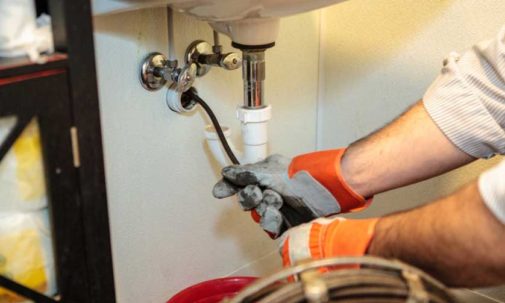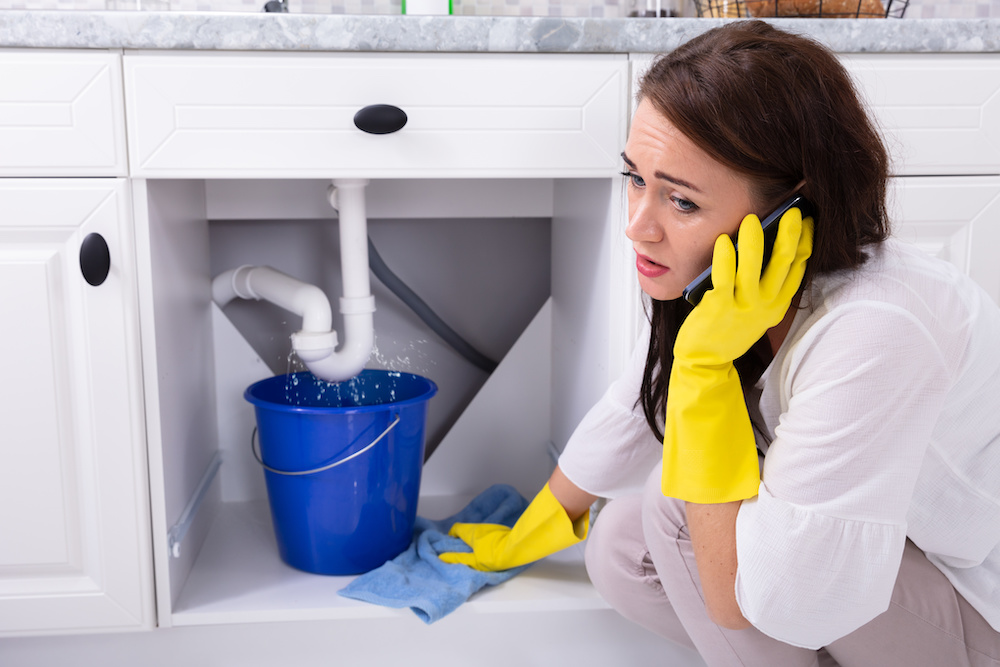The author is making a few good observations on Plumbing Emergencies: Tips on What To Do Before as a whole in this post underneath.

Plumbing emergency situations can strike any time, causing stress and prospective damage to your home. Whether it's a burst pipe, a clogged drain, or a dripping tap, understanding how to take care of the circumstance up until a professional plumbing arrives can conserve you from more issues. This short article provides essential emergency situation plumbing pointers to assist you reduce damages and gain back control during a plumbing situation.
Shut off the Supply Of Water
The first step in any kind of pipes emergency is to shut off the water. For localized issues, such as a dripping tap or toilet, switch off the shutoff near the fixture. When it comes to a major leak or ruptured pipe, locate your home's major water shut-off valve and transform it off promptly. Knowing the area of these valves ahead of time can save beneficial time during an emergency situation.
Address Little Leaks with Momentary Fixes
Tiny leaks can promptly end up being significant issues if left unchecked. Utilize these temporary solutions until specialist help gets here:
While these solutions aren't long-term, they can help reduce water loss and damages.
Unclog Drains Pipes Safely
A stopped up drainpipe can be an aggravating and unpleasant issue. Right here's just how to tackle it:
If these methods don't function, stay clear of using excessive pressure, as it might worsen the obstruction.
Handle Overflowing Toilets
An overflowing commode can create prompt turmoil. Below's what you must do:
Shut down Your Hot Water Heater
In specific emergencies, such as a ruptured pipeline, it's smart to turn off your water heater. This protects against getting too hot or damage to the unit when water quits streaming. Turn off the power supply to the hot water heater (electric or gas) and let it cool to prevent prospective hazards.
Momentarily Quit a Burst Pipeline
A ruptured pipe can bring about considerable water damage in mins. To alleviate the problem:
Call an expert plumbing quickly to attend to the issue permanently.
Manage Frozen Pipeline Carefully
In cooler environments, icy pipes are a common emergency. If you believe an icy pipeline:
Prevent More Damage
Taking quick activity to lessen damage can conserve you money and time in the long run. Here's just how:
. Have an Emergency Pipes Set
Prepare a fundamental pipes emergency set to take care of small problems efficiently. Your kit needs to include:
Having these devices handy can make a significant distinction in your capability to manage emergency situations.
Know When to Call an Expert.
While quick fixes can assist temporarily, specific pipes problems require prompt specialist focus. Call a plumbing professional if:.
Quickly contacting an expert ensures the problem is dealt with appropriately and avoids further issues.
Conclusion.
Pipes emergencies can be frustrating, but with the appropriate understanding and tools, you can handle the situation successfully till assistance arrives. By shutting off the water supply, dealing with tiny leaks, and making use of temporary solutions, you can minimize damages and keep your home safe. Keep in mind, these tips are short-term remedies; always get in touch with an accredited plumber to deal with the origin of the problem. Preparation and fast thinking are your ideal allies in any plumbing emergency.
8 Helpful Tips for Managing Plumbing Emergencies at Home
If your plumbing system hasn’t failed once, wait for it because almost everyone has a story to tell. Sometimes, it could be simple emergencies such as a leaking pipe, a blocked cistern, or even a big burst pipe. In situations like this, you need to have some handy tips to save you some money and from possible damages.
Take care of minor issues early.
Sometimes, you could have avoided an emergency by taking proactive measures while it was still early. Some major plumbing emergencies can be a result of an ignored minor issue. We recommend that you have items like plumbing tapes and other related items. A plumbing tape can allow you to manage minor leaks before the plumber arrives.
Cut off the water supply.
This tip is essential in almost any type of leakage problem. For problems like minor leakages in the toilet or kitchen, turn off the supply that takes water to the affected pipes. If the leakage is a major pipe, you must shut off the supply valve to the entire building. This will help you avoid flooding your home and neighbors if you share a flat.
Know your plumbing system
Folks typically move into a new apartment without understanding the water supply around the building. This can prove disastrous if a water emergency arises and the plumber is far away. The previous tip will prove useless if you don’t practice this one. More importantly, know where your water shut-off valve is located – you’ll need that knowledge to prevent potential home floods.
Have some common handy tools
There are lots of plumbing emergencies that you can handle without hiring a plumber. That’s why you must keep some tools available always. Some tools that you can use to fix simple plumbing emergencies easily include plumbing tapes, screwdrivers, thread seal tapes, plungers, pliers, tape measures, and rubber gloves.
Insulate your pipes from cold
You’ll save yourself from many plumbing expenses if you protect your water pipes from the cold. This is because of the harmful effects that cold weather can have on your pipes. During winter, your pipes can burst from being overly expected to freezing temperatures. So, make sure insulators are there to keep the pipes working correctly.
Avoid practices that will clog your toilet.
Many people indulge in practices that can damage the plumbing system of the entire building. One of these is when they use their toilet to dispose-off garbage. They flush all kinds of things, such as paper towels, bandages, hairs, female sanitary products, etc., down the toilet. This will block your toilet in the long run, incurring unnecessary expenditures. Dump such waste in the trash instead.
Check your dials regularly.
Sometimes, there could be leakages in your home without noticing them in time. So, constantly monitor your water meter dial. If the dial is reading when there is nobody using water, this is an indicator that there is leaking. Check for leaks immediately. Call a plumber as soon as possible if you can’t find any.
https://www.constructionplacements.com/8-helpful-tips-for-managing-plumbing-emergencies-at-home/

We hope you liked our post about What to Do While Waiting for an Emergency Plumber. Thanks for finding the time to browse our short article. So long as you enjoyed our blog post plz make sure you remember to pass it around. I truly appreciate your readership.
Call Today